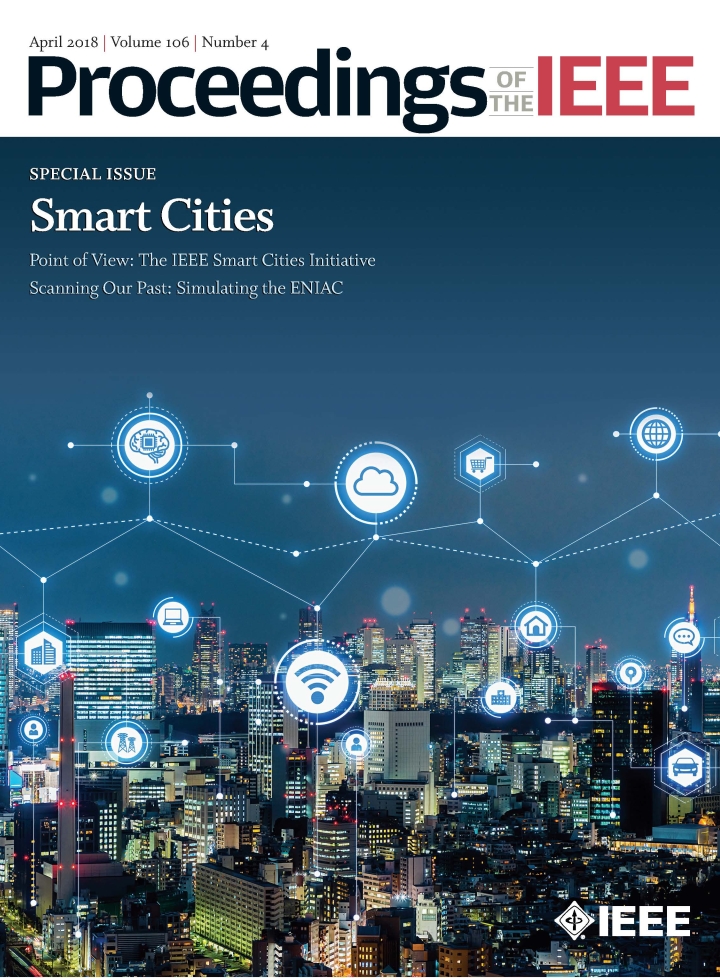2018 Journal Issues April 1, 2018


Guest Editors
Special Issue Papers



By G. Betis, C. G. Cassandras, and C. A. Nucci
By A. M. Annaswamy, Y. Guan, H. E. Tseng, H. Zhou, T. Phan, and D. Yanakiev
This paper explores the use of dynamic tariffs in order to increase the quality of urban mobility through transactive control.
By J. Zhang, S. Pourazarm, C. G. Cassandras, and I. Ch. Paschalidis
This paper studies transportation networks under two different routing policies, the selfish user-centric routing one and the socially optimal system-centric one, and proposes an index, the Price of Anarchy (PoA), to increase efficiency.
By A. Keimer, N. Laurent-Brouty, F. Farokhi, H. Signargout, V. Cvetkovic, A. M. Bayen, and K. H. Johansson
The focus of this paper is on the increasing impact new mobility services have on traffic patterns and transportation efficiency in general.
By T. J. Matarazzo, P. Santi, S. N. Pakzad, K. Carter, C. Ratti, B. Moaveni, C. Osgood, and N. Jacob
This paper discusses new services that can be delivered to urban environments through big data generated by the public’s smartphones, enhancing the relationship between a city and its infrastructure.
By Y. Hayashi, Y. Fujimoto, H. Ishii, Y. Takenobu, H. Kikusato, S. Yoshikawa, Y. Amano, S. Tanabe, Y. Yamaguchi, Y. Shimoda, J. Yoshinaga, M. Watanabe, S. Sasaki, T. Koike, H. Jacobsen, and K. Tomsovic
This paper presents a modeling platform, including cooperative energy management systems (EMSs), which reproduces the model of a smart distribution network by using data obtained from the real world.
By M. Masera, E. F. Bompard, F. Profumo, and N. Hadjsaid
This paper discusses the main impact that smart grid deployment has, in different respects, on smart cities and then presents a methodology for an extended cost benefit analysis.
By A. Gómez-Expósito, A. Arcos-Vargas, J. M. Maza-Ortega, J. A. Rosendo-Macías, G. Alvarez-Cordero, S. Carillo-Aparicio, J. González-Lara, D. Morales-Wagner, and T. González-García
This paper reviews the fast evolution of power systems of the last decade and illustrates, through featured success stories, how several smart grid concepts and technologies have been put into practice in Spain.
By S. Abrol, A. Mehmani, M. Kerman, C. J. Meinrenken, and P. J. Culligan
This paper illustrates that creating an affinity between a building resident’s thermal preferences and a building apartment’s unregulated thermal environment represents alternative means of generating an energy-efficient environment for multifamily, residential buildings.
By M. Razaghi and M. Finger
This conceptual paper brings together insights from sociotechnical systems, systems theory, and governance literature to shed light on why city administrations should closely follow these changes and adapt the governance approaches accordingly.
By T. S. Brisimi, T. Xu, T. Wang, W. Dai, W. G. Adams, and I. Ch. Paschalidis
This paper focuses on the two leading clusters of chronic disease, heart disease and diabetes, and develops data-driven methods to predict hospitalizations due to these conditions, as urban living in modern large cities has significant adverse effects on health.
By D. J. Cook, G. Duncan, G. Sprint, and R. L. Fritz
This paper discusses how smart city ICT can also improve healthcare effectiveness and lower healthcare cost for smart city residents.
By F. Bertini, G. Bergami, D. Montesi, G. Veronese, G. Marchesini, and P. Pandolfi
This paper proposes two different predictive models for frailty by exploiting a number of socioclinical databases. In the last decades, life expectancy has increased globally, leading to various age-related issues in almost all developed countries, which this article is aiming to address in part.
By O. Andrisano, I. Bartolini, P. Bellavista, A. Boeri, L. Bononi, A. Borghesi, A. Brath, G. E. Corazza, A. Corradi. S. de Miranda, F. Fava, L. Foschini, G. Leoni, D. Longo, M. Milano, F. Napolitano, C. A. Nucci, G. Pasolini, M. Patella, T. S. Cinotti, D. Tarchi, F. Ubertini, and D. Vigo
This paper is motivated by the concept that the successful, effective, and sustainable implementation of the smart city paradigm requires a multidisciplinary approach and a strict cooperation among researchers with different, complementary interests.
Point of View
By Gilles Betis, Victor M. Larios, Dario Petri, Xiaojun Wu, Aaron Deacon, and Aawatif Hayar

Scanning Our Past
By Brian L. Stuart
